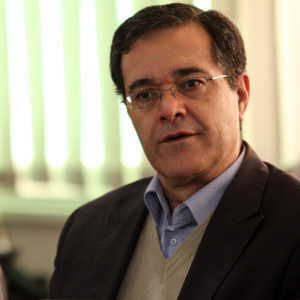The Future of Tehran-Paris Relations

Last week, French Foreign Minister Michele Alliot-Marie blamed Iran for the failure of the nuclear talks in Istanbul. Relations between Iran and France have been fairly cold since the beginning of Nikolas Sarkozy’s presidency in 2007, but they seem to have significantly deteriorated after the 2009 contentious presidential election in Iran. Iranian Diplomacy interviewed Ahmad Naqibzadeh, professor of political science at University of Tehran and an EU affairs analyst, on the dynamics of Tehran-Paris relations.
IRD: Iran-France relations have undergone many ups and downs during recent years. Where do they stand at this juncture?
AN: Well, they are quite cold at the moment, and pulses sent by both sides signal adversity. For instance, less than two months ago there was a scuffle at the French embassy in Tehran in which the Iranian police were involved. Paris was particularly outspoken in supporting Iranian protestors after the 2009 presidential elections. I think given the current conditions, severance of ties would come as no surprise.
IRD: It seems that France is taking a tougher stance against Iran as compared with the US or its European partners, the UK and Germany.
AN: I don’t think so. The United States is still ahead of other Western countries in its aggressive behavior toward Iran. What France is doing is an imitation of Washington’s behavior.
IRD: France’s confrontational attitude toward Iran has become more stringent during recent months. How can we explain this? Is it directly related to Iran’s policies, or it’s a by-product of domestic affairs in France?
AN: I can point to several factors contributing to this issue. The first one would be Sarkozy’s attitude: he believes that France should not lag behind Britain in global affairs and for him, the solution is approaching the US and forming a Paris-London-Washington troika, which implicates dispensing with Euro-oriented policies and replacing them with a trans-Atlantic one. Sarkozy is, meanwhile, a controversial politician and has a preference for speaking louder than others. He has also learned a lesson from Jacques Chirac’s friendly attitude toward Iran, which made the former French president a target of pro-Israel pressure groups. The last factor is Europe’s eagerness to restore its status as an influential actor in the Middle East, and this is not possible without cooperation with the US.
IRD: Senior French officials, like French first lady Carla Bruni, have voiced support for Sakineh Mohammadi Ashtiani, the woman sentenced to death on charges of adultery and murder in Iran. How important are human rights issues in Tehran-Paris relations?
AN: I think human rights have never been a serious concern for the Europeans. They are just a lever to win concessions from Iran or any other country.
IRD: And how do you predict the future of relations between Iran and France?
AN: Iran-France ties are a part of the larger Iran-EU relations framework. Unfortunately, Western countries have come to the belief that negotiations with Iran are useless. This creates anything but a conducive atmosphere for cooperation. Iran should prepare for the future and know that the West will resort to any ruse to undermine Iran, if it has the power to do so.

